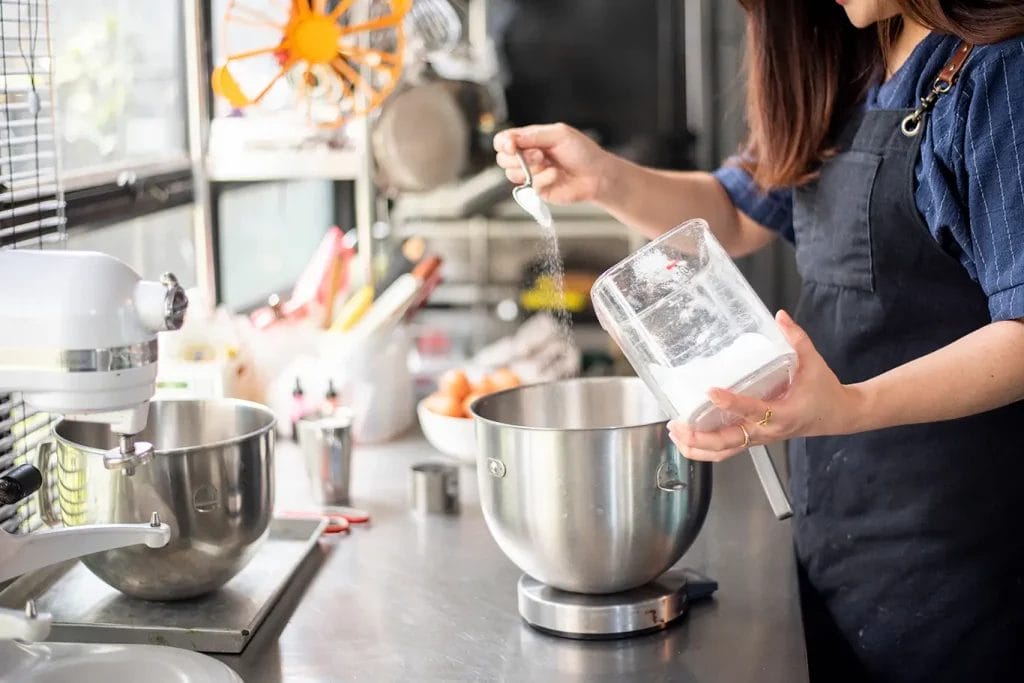Last Updated: 10/13/2023
You have your baking skills down to an art and you’re pumped to start a home baking business. The nice thing about a home-based bakery is that you don’t need to worry about the pricey overhead that accompanies opening a storefront.
Here’s a walkthrough of the home bakery requirements you’ll need to become a home baker.
Make Sure a Home Bakery Is Allowed in Your Area
Visiting your state’s health department site should be the first thing on your list. Each state has different regulations regarding cottage industries and the standards of home-based kitchens and it is important to do your own research.
If your state doesn’t allow home-based bakeries, one alternative to consider would be to utilize a commercial kitchen.
Pass a Health Inspection
Your state may require a health inspection or an Environmental Protection Agency inspection. It may be a complete inspection of your home-based bakery or an inspection of essential items.
The National Restaurant Association recommends taking these steps in your home bakery kitchen:
- Reinforcing handwashing
- Making sure all employees are up to date with food safety practices
- Doing your own walkthrough in and out of the establishment

Obtain a Food Safety Certificate
You may be required to obtain a food safety certificate for your at-home bakery business depending on your state’s regulations. If your state doesn’t require one, it’s a great tool to educate you and your team in proper food handling and storing to prevent cross-contamination from happening.
Get your online food safety certification.
Keep Your Kitchen Up to Code
Making sure your kitchen meets your state’s specific requirements is crucial; however, here are a few things that your home-based kitchen may need regardless of where you live.
Additions to Your Home
- More sinks: The FDA food code requires that every food service business has at least one hand sink and one food prep sink.
- Food prep areas: Keeping your food prep areas separate can lower the risk of cross-contamination.
- Food storage areas: A designated food storage area can decrease food spoilage and cross-contamination from outside substances.
Learn About Fire Preparedness
- Install a fire detector and test the batteries at least once a month. You will also want to replace the batteries every six months.
- Keep the fire extinguisher in an easy to reach area. Inspect your fire extinguisher every month. Replace if the hose is cracked, the locking pin is missing/unsealed, or the handle is broken.
- Keep walkways clear and remove debris.
Cover Your Bake-From-Home Business With Bakers Insurance
How are you protecting your home bakery business and its assets? Bakers insurance is designed to protect you from third-party claims.
For example, if your customer experiences an allergic reaction from the food you prepare and sell, you may be on the hook for paying their medical bills. Don’t let this financial strain cause a rift in your bakery business.

A Recipe for Success
Knowing the basic requirements of starting an at-home bakery business is an important first step on the road to turning your passion into profits. Be sure to obtain necessary certifications, keep your kitchen up to code, educate yourself on food and fire safety, and protect your business from unexpected claims with bakers insurance.
Whether you’re baking bread, cakes or everything in between, we wish you luck on this exciting endeavor!


